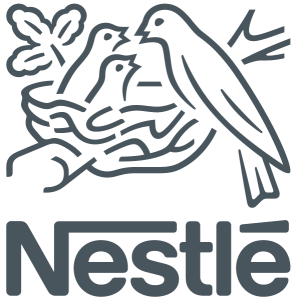Why our food system needs innovation
Our current food system urgently needs to transform to address today’s critical environmental, health and social challenges – climate change, land degradation, water stress, loss of biodiversity, farmers livelihoods, over and undernutrition including access to affordable nutrition. The COVID-19 pandemic put a spotlight on the importance of robust and resilient food systems, which the war in Ukraine and its effects only confirmed.
In the EU’s Farm to Fork strategy, plant-based foods are highlighted for the important role they can play in addressing the environmental impact of the food system as well as the health needs for specific consumers while contributing to animal welfare.
More plant-based options
Nestlé is about good food, good life. Good food that is nutritious and tastes great. Good food that also respects our planet. We play a key role in helping consumers on their journey towards more sustainable and healthy diets. This is why we continue to expand our offering of plant-based foods and beverages.
Innovation is a critical enabler of our food system transformation journey. Globally, around 300 Nestlé R&D scientists, engineers and product developers dedicate their work to the research and development of plant-based products, representing almost 10% of all our R&D employees. To complement our internal capabilities, the company also collaborates with academia, suppliers, start-ups and various other innovation partners. Our scientists also work with farmers to breed and select nutritious, tasty pulses and grains best suited for plant-based alternatives.
Since the launch of our own 100% plant-based burger (Sensational Burger) in 2019, Nestlé has expanded into a wide variety of plant-based alternatives, such as Vuna (2020), a tuna alternative, and vEGGie (2021), an egg alternative. We are giving people options with alternatives for dairy products, coffee mixes and creamers, and even chocolate has a plant-based variety through one of Nestlé’s most iconic brands – KitKat V (2022).

From theory to (policy) action
The EU Green Deal and the Farm to Fork strategy give a clear direction to transform Europe into the first climate-neutral continent by 2050, supported by consumer and society demand for plant-based solutions. But this ambition is undermined by a legislative landscape that has clearly not kept pace.
In the face of continued fragmentation of the Single Market, plant-based manufacturers come up against different legislations and a multiplication of technical barriers. In the absence of an EU-led framework, we are also faced with distorting and incoherent national measures creating barriers to consumers’ understanding and acceptance of innovative plant-based products. To support the transition to more sustainable food systems and meet the need for continued innovation to provide tasty, nutritious and affordable alternative protein solutions on the European market(s), EU policymakers have to step up.
First, the European Union needs to address the variation of non-tarif measures, such as labelling requirements or denomination restrictions for alternative protein products, as well as streamlining authorisation procedures on all levels for new plant-based ingredients. Innovation in this field can only accelerate if commercialisation is no longer a steeplechase. For plant-based products to be a fully complementary alternative for consumers, a harmonised and level-playing field with the animal-protein sector is necessary.
Second, we need a stronger public-private relationship that can sustain change and incentivise competitive innovation. This could be established through dedicated funding opportunities for the food and drink sector in EU framework programmes like Horizon Europe, thus helping achieve both the green transition and the objectives of the Farm to Fork Strategy.
In sum, there is no lack of drive on the part of the private sector to deliver the means necessary to drive Europe’s transition towards more sustainable diets. Large companies are embracing a start-up culture that can drive sustainability and growth through the market, in line with the EU’s ambitions. Nestlé’s experience has shown that the potential of plant-based proteins can be unlocked to support this transition but that to achieve greater scale more rapidly, a consistent and coherent policy framework for plant-based innovations is needed.

